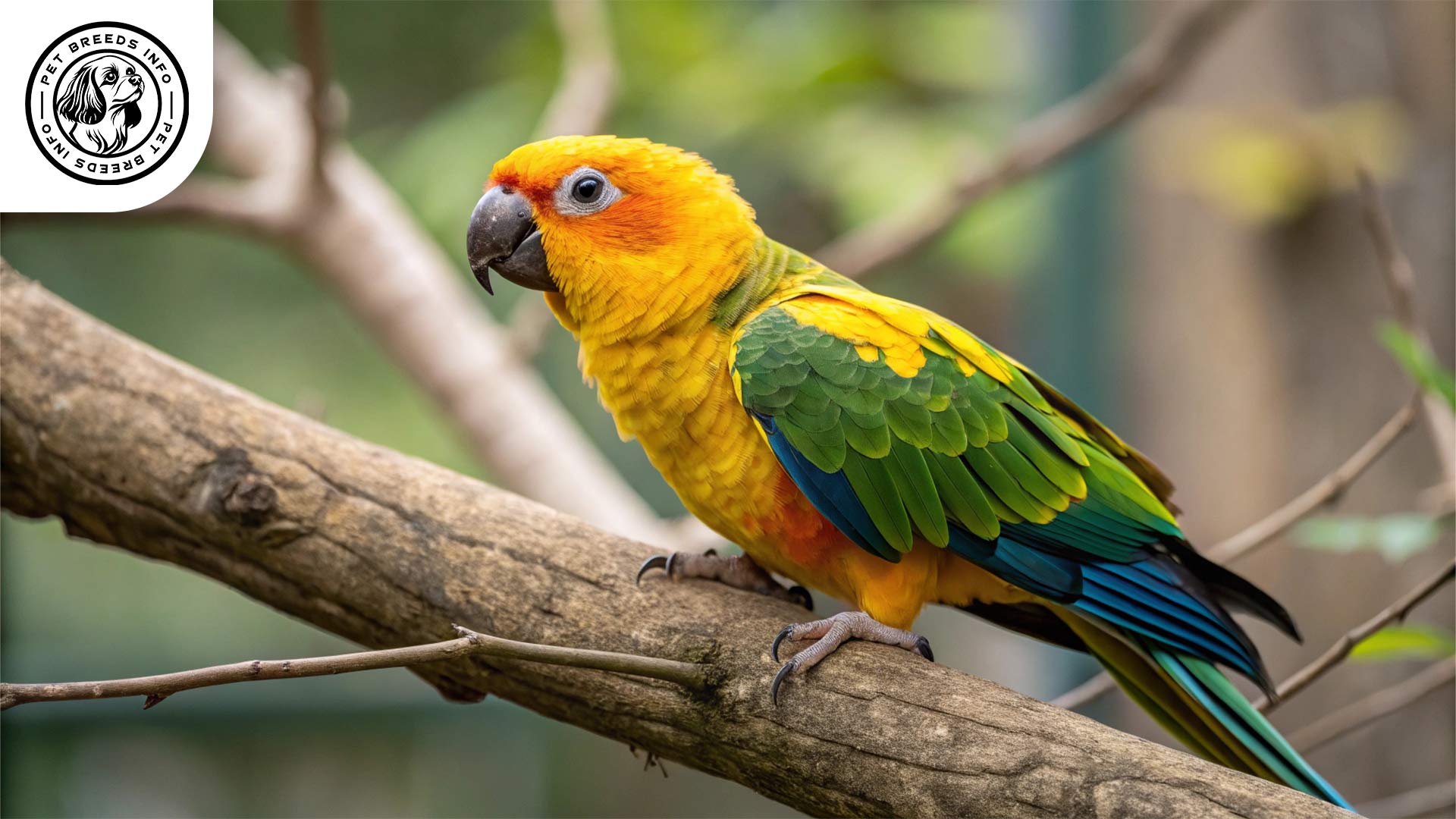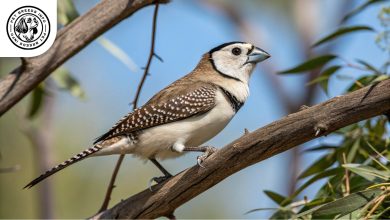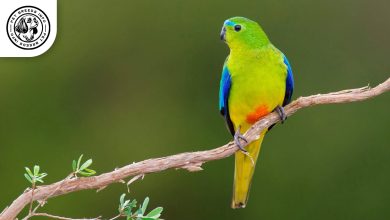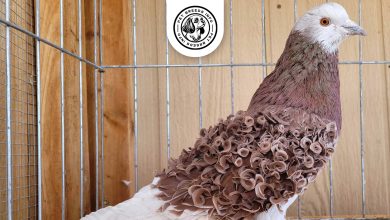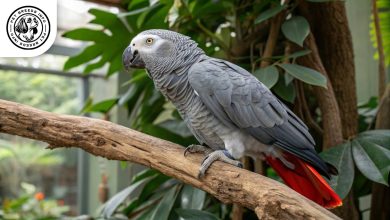Jenday Conure Bird: Personality, Lifespan, Food & Care
General Introduction of the Breed
The Jenday Conure (Aratinga jandaya) is a strikingly colorful parrot native to northeastern Brazil. It is sometimes referred to as the Jandaya Parakeet or simply Jenday Parakeet. This bird belongs to the conure family and has gained popularity as a cherished pet due to its affectionate nature and vibrant plumage.
Historically, the Jenday Conure has been admired in aviculture for many years. It is commonly bred in captivity and is a favorite among parrot enthusiasts for its playful nature and ability to bond closely with owners.
Table of Contents
| Common Name | Jenday Conure |
| Scientific Name | Aratinga jandaya |
| Origin | Northeastern Brazil |
| Size | Medium-sized; 12 inches, 100–130 grams |
| Lifespan | 25–30 years |
| Colors | Orange head, yellow chest, green wings/back, blue-green tail |
| Talking Ability | Low – may mimic some sounds or words |
| Noise Level | High – loud, piercing vocalizations |
| Social Behavior | Extremely social, bonds closely, playful, affectionate |
Physical Characteristics
The Jenday Conure is a medium-sized parrot, typically measuring around 30 cm (12 inches) in length, including its long tail. It usually weighs between 100-130 grams, with males and females being similar in size.
Its plumage is a brilliant combination of colors. The head is bright orange, blending into a golden-yellow chest. The wings and back are green, while the tail feathers display a mix of green and blue. These vivid colors make the Jenday Conure one of the most attractive conure species.
The bird has dark brown or black eyes encircled by a white featherless ring. Its beak is strong and black, ideal for cracking open seeds and exploring objects. The tail is long and tapered, adding to the bird’s sleek and elegant appearance.
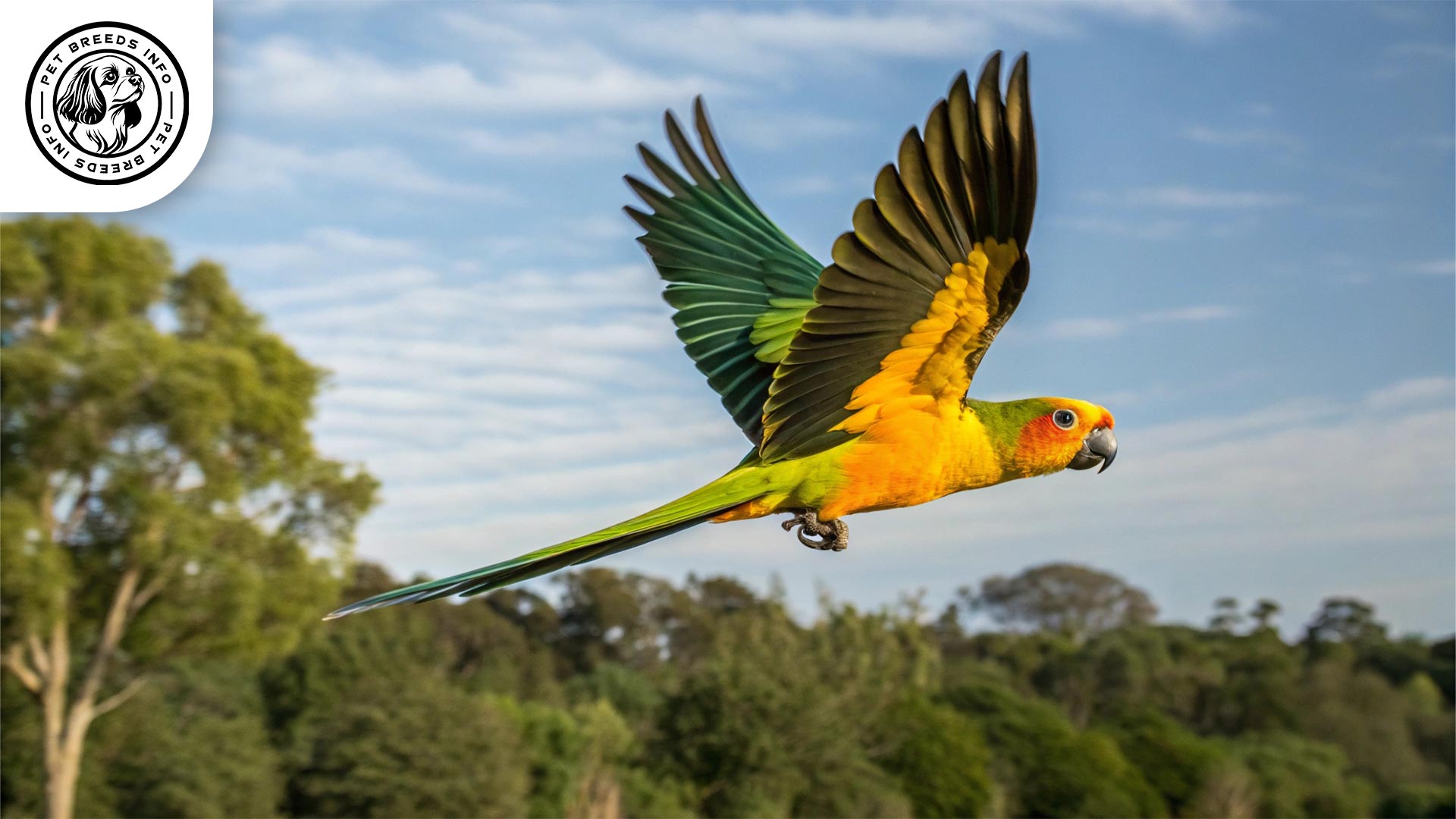
Personality and Temperament
The Jenday Conure is highly intelligent and eager to learn. It can quickly pick up tricks and may even mimic some words or sounds, though it is not the most accomplished talker among parrots.
It has a high energy level and requires frequent interaction and playtime to stay happy. This bird loves climbing, flying, and chewing on toys, making regular mental and physical stimulation essential.
Jenday Conures form strong attachments to their owners and enjoy being held, cuddled, and spending time outside their cage. They are highly social and thrive on attention, often seeking interaction with family members.
These parrots generally get along well with humans and can be good companions for older children. However, they have a loud, piercing call, which can sometimes be disruptive, especially in noise-sensitive households.
Care and Maintenance Requirements
The Jenday Conure is an active bird that needs ample space for movement. A large cage with horizontal bars is ideal, allowing it to climb and explore. Free flight time outside the cage is necessary to prevent boredom and promote proper exercise.
Since it has a relatively smooth feather structure, this bird requires minimal grooming. Regular baths or misting help maintain bright, healthy feathers. Its beak and nails naturally wear down through activities like climbing and chewing, but occasional trimming may be necessary.
Jenday Conures are sensitive to extreme temperatures. They should be kept in a stable environment, away from drafts, direct sunlight, and extreme humidity.
Diet and Nutrition
A balanced diet is crucial for this parrot’s health. High-quality pelleted food should form the majority of its diet, supplemented with fresh fruits, vegetables, and seeds.
Foods to avoid include chocolate, caffeine, avocado, and salty or sugary foods. These can be toxic or harmful to parrots.
Read More: Leghorn Chicken
Portion sizes should be adjusted based on the bird’s activity level. Fresh water and a variety of nutritious foods should be provided daily.
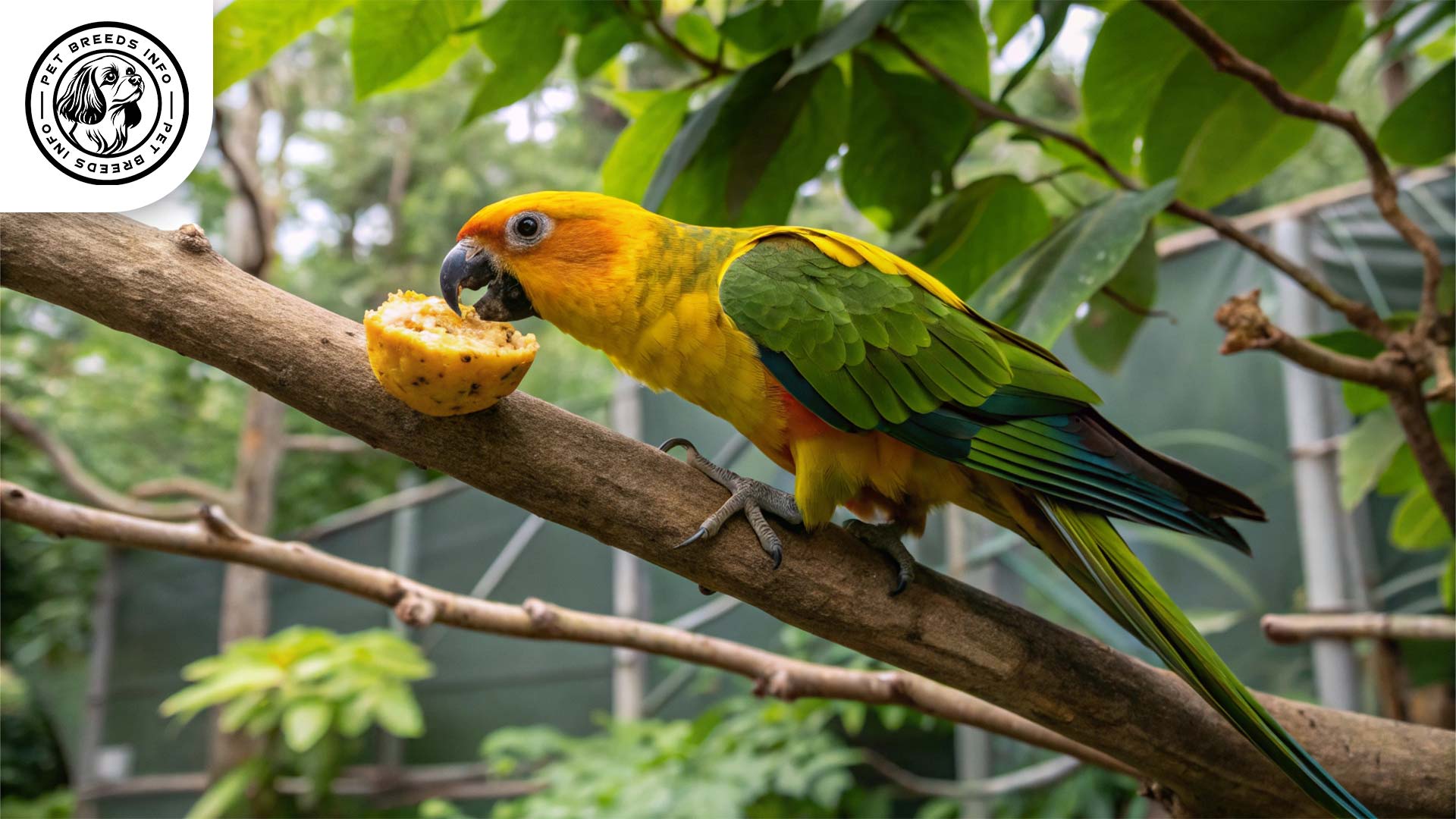
Health and Common Medical Issues
The Jenday Conure has an average lifespan of 25-30 years with proper care. However, it may be susceptible to some common avian health conditions, including respiratory infections, feather plucking due to boredom or stress, and Psittacine Beak and Feather Disease (PBFD).
Regular veterinary check-ups, a healthy diet, and a stress-free environment help prevent many medical issues. Routine vaccinations and parasite prevention are also recommended.
Training and Behavior Management
Jenday Conures are relatively easy to train with consistency and patience. They respond best to positive reinforcement using treats and praise.
Early training should focus on socialization, step-up commands, and basic behaviors. Providing toys and activities helps prevent destructive behaviors like excessive chewing.
Read More: Red-lored Amazon Bird
Since they can be loud, training can include discouraging unnecessary screaming by reinforcing quiet behavior and providing distractions when they seek attention.
Interaction with Other Animals and Humans
This breed is friendly and enjoys interaction with owners. It can form bonds with families and make an affectionate companion. However, because of its vocal tendencies, it may not be suited for noise-sensitive living environments.
Jenday Conures can coexist with other birds of similar size but may become territorial, requiring careful introductions in multi-bird households.
They are generally good with children who understand how to handle them gently. However, their beak strength means supervision is required to prevent accidental biting.

Price and Availability
The Jenday Conure typically costs between $400-$700, depending on the breeder, age, and color variations. Prices may be higher for well-socialized, hand-raised birds.
It is advisable to buy from reputable breeders or adopt from avian rescue organizations to ensure the bird is healthy and ethically sourced.
Conclusion and Final Thoughts
The Jenday Conure is a wonderful pet for those who can dedicate time and attention to its care. Its vibrant personality, sociable nature, and affectionate behavior make it a great companion.
Ideal for families or individuals who enjoy interactive and playful pets, this bird thrives in a stimulating environment that provides enrichment through toys, socialization, and free flight time.
Read More: Lilac-crowned Amazon Bird
Potential owners should consider the bird’s vocal nature and daily care requirements before committing. With proper attention, training, and a loving home, the Jenday Conure can be a delightful and lifelong feathered friend.
FAQ
Is the Jenday Conure a good talker?
It may mimic a few words or sounds, but it’s not known for advanced talking skills.
How long do Jenday Conures live?
With proper care, they can live 25 to 30 years.
Are Jenday Conures suitable for apartments?
They can be, but their loud calls may not suit noise-sensitive neighbors or quiet environments.
What should they eat?
High-quality pellets, fresh fruits and vegetables, and occasional seeds or nuts.
